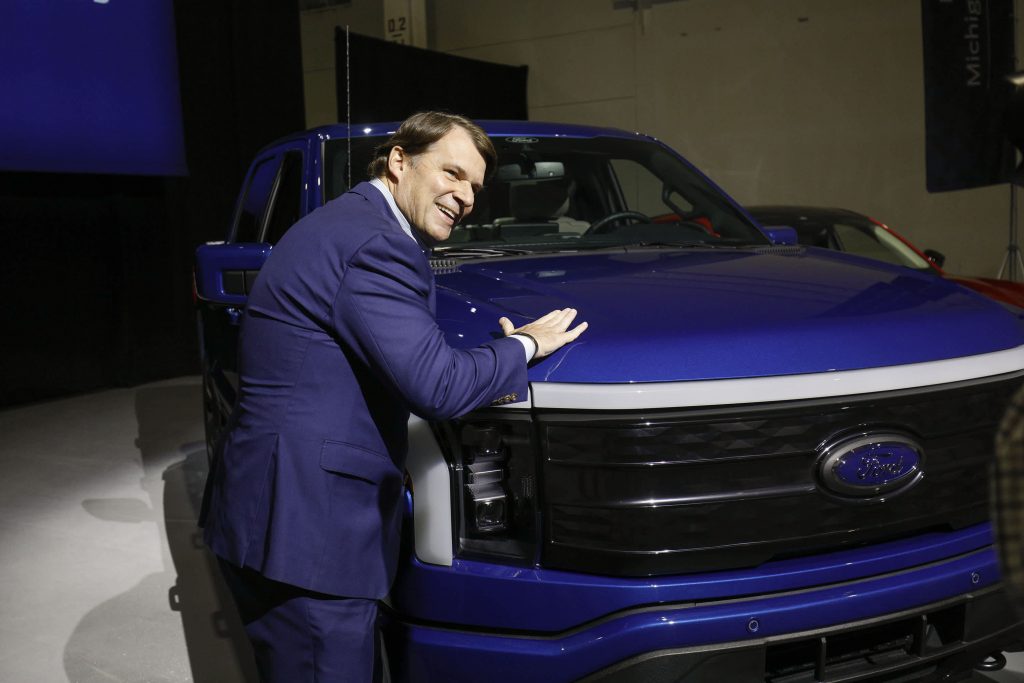
Ford said Wednesday it believes engineers have found the root cause of the issue. The investigation into the problem is expected to be completed by the end of next week, followed by adjustments to the truck’s battery production process that “could take a few weeks.”
A Ford spokeswoman declined to disclose additional details of the issue, which led to the production halt as well as a stop-shipment on already-produced trucks.
The battery supplier for the truck is South Korea-based SK On, a spinoff of SK Innovation, which the Detroit automaker announced a joint venture with last year to establish battery production facilities in the U.S.
Ford said it is not aware of any incidents of this issue in vehicles that have already been delivered to customers and dealers. Retailers can continue to sell vehicles that they may already have in stock.
The F-150 Lightning is being closely watched by investors, as it’s the first mainstream electric pickup truck on the market and a major launch for Ford.
The battery issue adds to ongoing “execution issues” detailed to investors earlier this month by Ford CEO Jim Farley that crippled the automaker’s fourth-quarter earnings.
Farley reiterated Wednesday that the automaker needs to do better operationally to be more profitable and bring margins in-line with competitors. He said Ford is less profitable than its legacy peers because it has a cost disadvantage of between $7 billion and $8 billion.
“We can cut the cost, we can cut people, we can do that really quickly and we’ll do whatever we need to,” Farley said during a Wolfe Research conference. “The reality is if you don’t change the efficiency of engineering, supply chain and manufacturing, the basic work statement, the way people work, the efficiency of that it’ll grow back
Farley later added, “This is really about redesigning what we do in the 120-year-old part of the company.”



